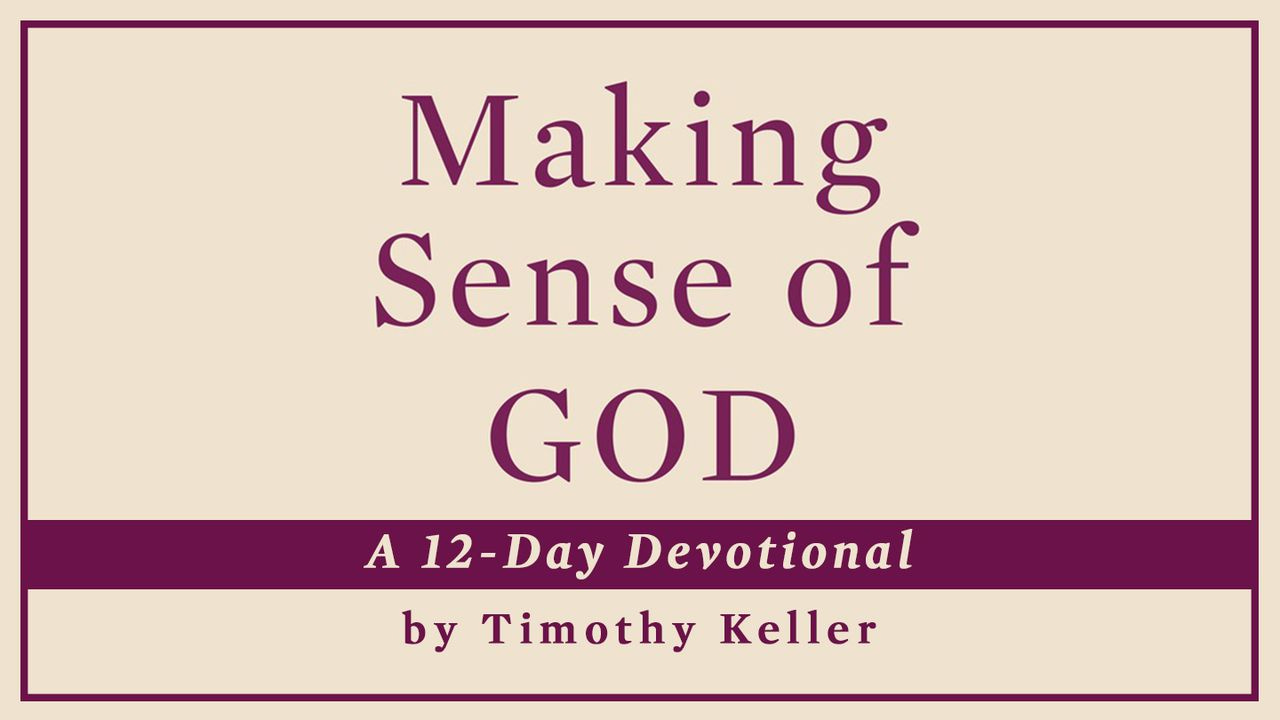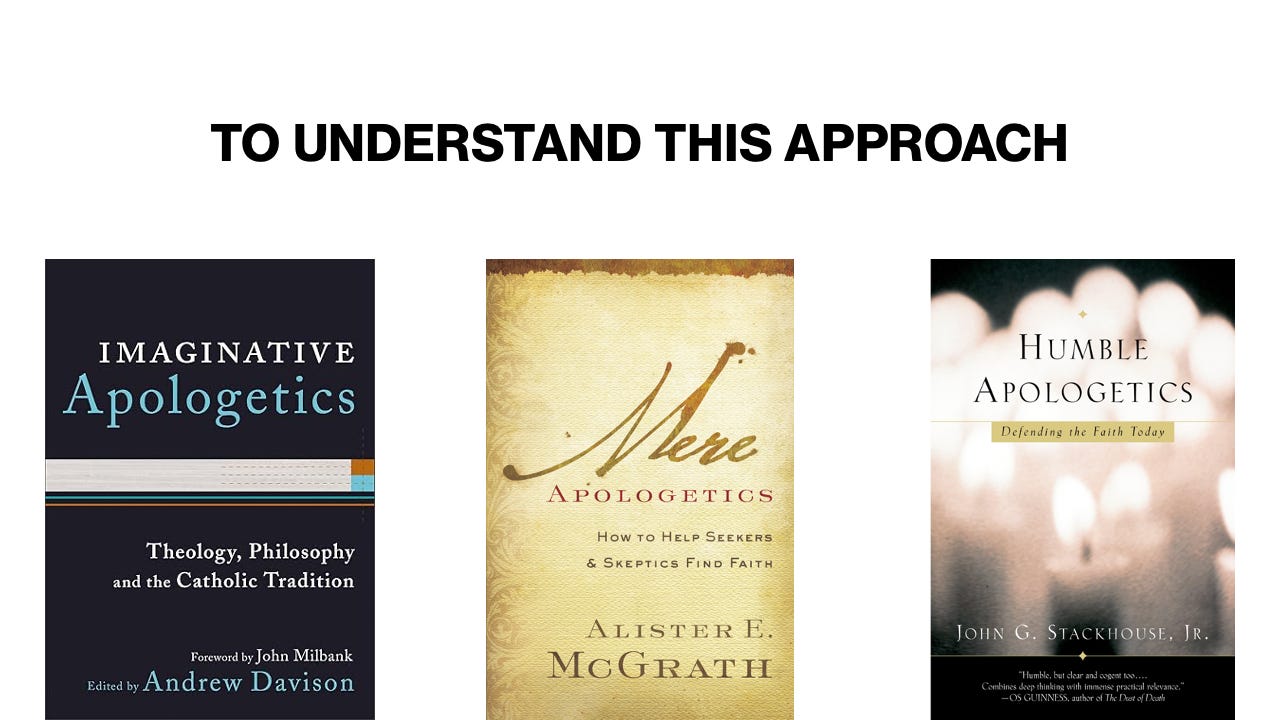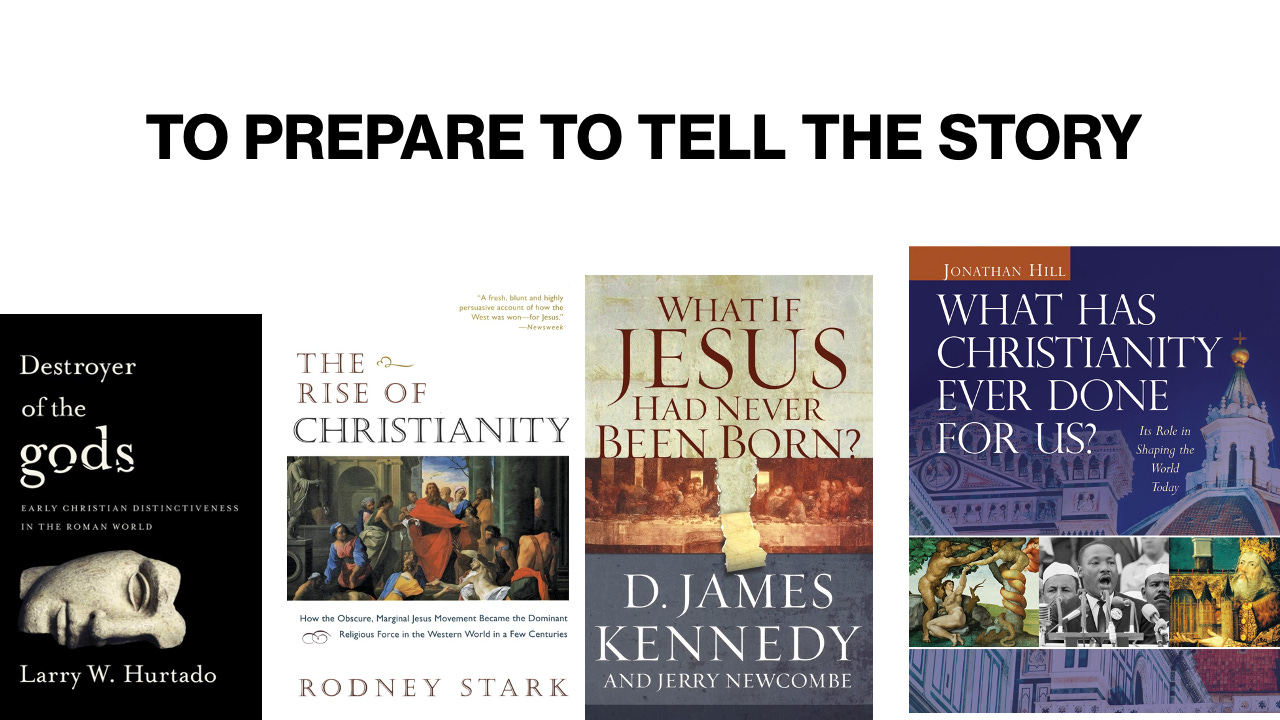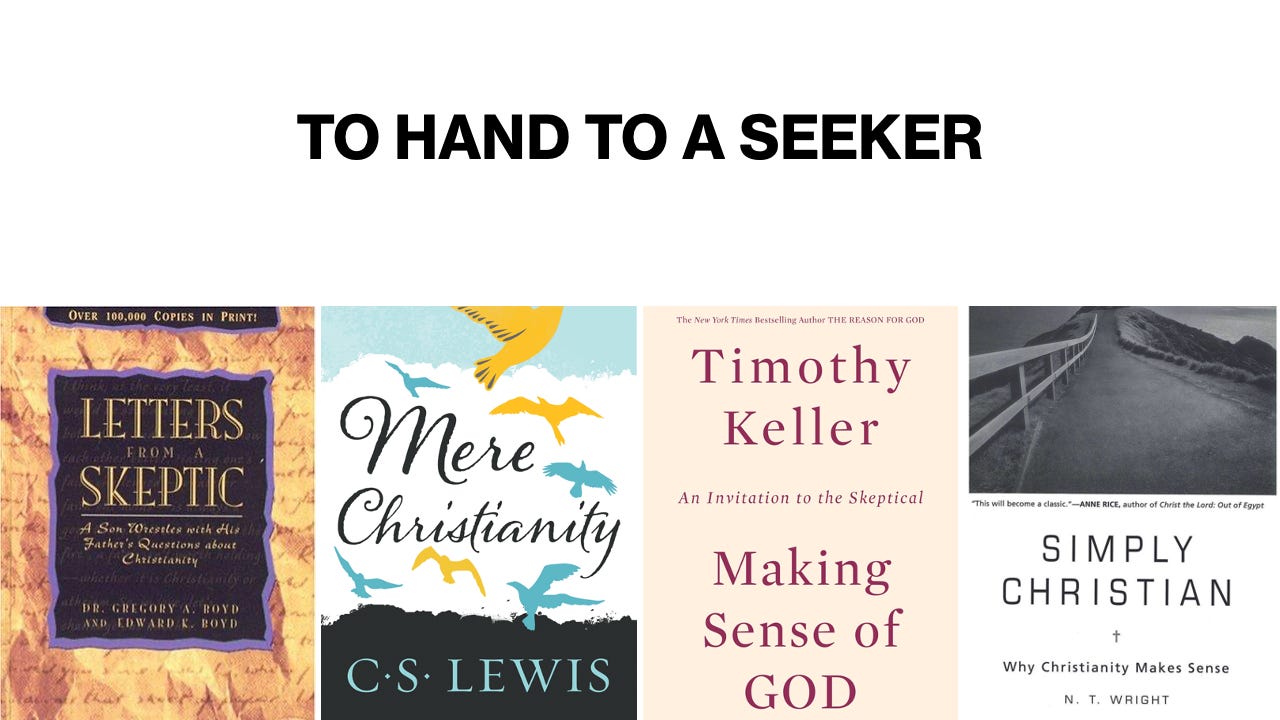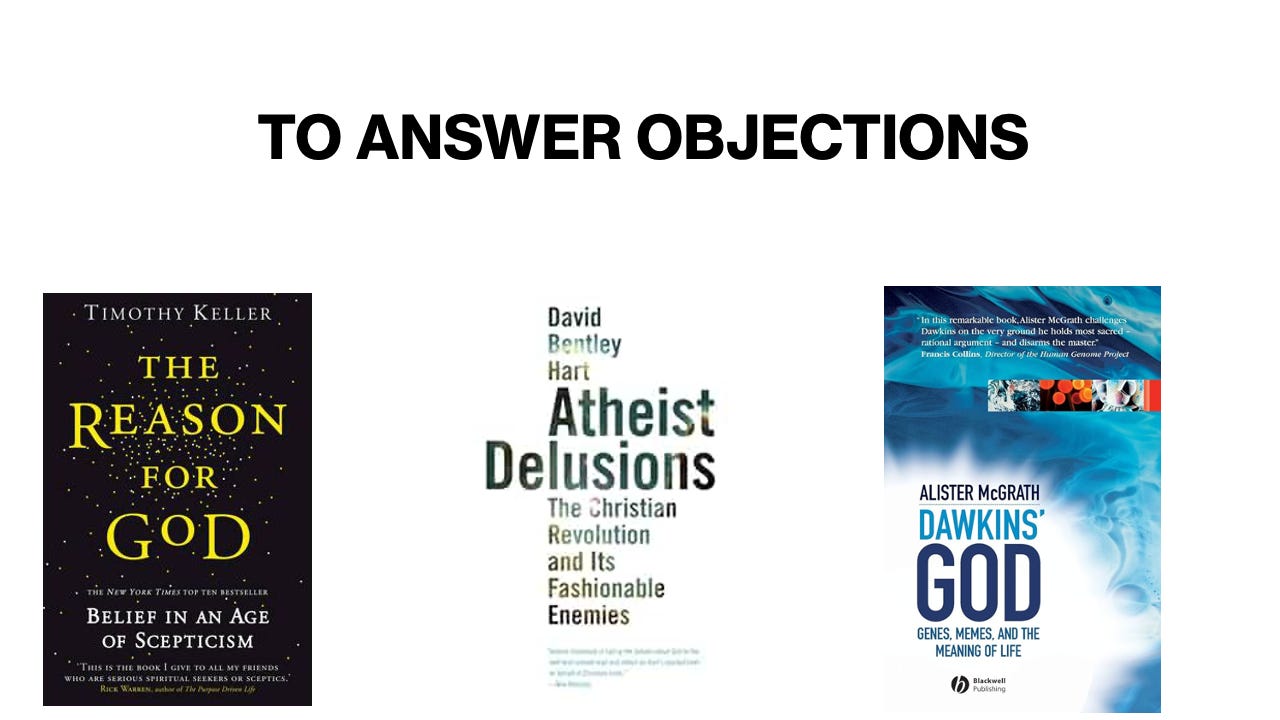In This Edition:
Evidencing Christianity: Resource Recommendations
Whats New On The West Side?
Subscribe!
Evidencing Christianity: Resource Recommendations
But thanks be to God! For in union with Christ we are always led by God as prisoners in Christ's victory procession. God uses us to make the knowledge about Christ spread everywhere like a sweet fragrance. For we are like a sweet-smelling incense offered by Christ to God, which spreads among those who are being saved and those who are being lost. For those who are being lost, it is a deadly stench that kills; but for those who are being saved, it is a fragrance that brings life. Who, then, is capable for such a task? We are not like so many others, who handle God's message as if it were cheap merchandise; but because God has sent us, we speak with sincerity in his presence, as servants of Christ.
(2 Corinthians 2:14-17 GNT)
A MORE BEAUTIFUL STORY
In Homer’s epic poem The Odyssey, Ulysses is on his way home from the Trojan War. He had been warned about the song of the Sirens. Sirens are monsters, disguised as gorgeous women with the most beautiful voices; and as sailors sailed past their island, they would assure them that their only desire is to help each sailor pass the time by singing beautiful melodies. But their beauty disguises their real ambition: to kill everyone and everything that comes their way.
To guard against the siren song, Ulysses fills his ears with wax and does the same for his men. But Lot’s wife turned back for a reason. Ulysses tied himself to the ship mast, and then commanded his men to remove the wax from his ears. As it turns out, ignoring doesn’t fill the longing.
But there is another epic poem, written 5 centuries later. In this one, the Greek god Apollo gives a lyre to a man named Orpheus, who could play more beautifully than anyone before or since. The ship set sail with Orpheus aboard, and soon they sailed by those rocky islands and the sirens began to sing. When Orpheus heard their voices, he drew his lyre and began to play. He introduced a melody even more beautiful than any could rival, drowning out the Sirens song.
When faced with the options of welcoming the siren song, withdrawing from the fight by stuffing up his ears and ignoring their alluring voices, or conquering them through violent power and might, he chose instead to introduce something more beautiful than any could rival.
He who has ears to hear, let him hear.
I just got back from the Equip Conference in Orlando where I was able to share some reflections on a healthier approach to apologetics: a way to tell our true, good, and beautiful story. We noted that “Christian evidences” will be as effective as our lives “evidence Christianity” by telling a more beautiful story.
I was asked several times to offer resources for those interested in this approach. Here is where I would start.
To get a feel for a more humble and imaginative apologetics, I would suggest the three following books:
Imaginative Apologetics: Theology, Philosophy, and the Catholic Tradition. Edited by Andrew Davison. Baker Academic, 2012. See especially the chapters by John Hughes and Craig Hovey. For an excellent review of the book, look here.
Humble Apologetics: Defending the Faith Today. By John G. Stackhouse, Jr. Oxford University Press, 2002. For a positive review of the book, see here.
Mere Apologetics: How to Help Seekers and Skeptics Find Faith. By Alister McGrath. Baker Books, 2012. For a great review of the book, look here.
If you wish to bone up on the story early Christians told, the lives they lived, and the counter-cultural revolution they sparked, I would recommend the following five places to start:
The Rise of Christianity: How the Obscure, Marginal Jesus Movement Became the Dominant Religious Force in the Western World in a Few Centuries. By Rodney Stark. HarperSanFrancisco, 1997.
Destroyer of the gods: Early Christian Distinctiveness in the Roman World. By Larry Hurtado. Baylor University Press, 2017.
What If Jesus Had Never Been Born? By D. James Kennedy & Jerry Newcombe. Thomas Nelson, 2008.
What Has Christianity Ever Done For Us?: Its Role In Shaping The World Today. By Jonathan Hill. Lion Books, 2005.
Dialogue with Trypho. By Justin Martyr.
What book should I put in the hand of my neighbor who sees no value in pursuing the Christian faith, or my co-worker who wonders if there are any good reasons for pursuing Christ, or my son who is beginning to think the Christian story is just one of many, and not a very good one at that?
Mere Christianity. By C. S. Lewis.
Making Sense of God: An Invitation to the Skeptical. By Timothy Keller. Penguin Books, 2016.
The Air We Breathe: How We All Came to Believe in Freedom, Kindness, Progress, and Equality. By Glen Scrivener. The Good Book Company, 2022.
The Big Question: Why We Can’t Stop Talking About Science, Faith, & God. By Alister McGrath. St. Martin’s Press, 2015.
Letters from a Skeptic: A Son Wrestles with His Father’s Questions about Christianity. By Gregory A. Boyd and Edward K. Boyd. David C. Cook, 1994.
Simply Christian: Why Christianity Makes Sense. By N. T. Wright. HarperOne, 2021.
I am expecting a “yeah, but…!” How do I prepare myself for pushback?
The Reason for God: Belief in an Age of Scepticism. By Timothy Keller. Penguin Books, 2009.
Atheist Delusions: The Christian Revolution and Its Fashionable Enemies. By David Bentley Hart. Yale University Press, 2010.
Dawkins’ God: Genes, Memes, and the Meaning of Life. By Alister McGrath. Wiley-Blackwell, 2004.
If you are so interested in a deep dive to gain a more comprehensive understanding of the Christian story, apologetics, Christian worldview, and theological approaches within Christian history, I would recommend this FREE course called the “Defenders Podcast” by Reasonable Faith, featuring Dr. William Lane Craig’s 3-year Sunday School class material at his local church. An expert in philosophy and theology, Dr. Craig is a trusted partner to walk alongside you as you gain clarity on the complex issues involved in telling our true, good, and beautiful story. In addition, I have found Wes Huff, Peter Kreeft, and the sermons of Tim Keller to be especially fruitful. And, if you are really desperate, you can read my stuff.
Subscribe to Life on the West Side
My name is Nathan Guy. I serve as associate professor of philosophy, theology, and ethics and as the director of the David E. Smith Healthcare Ethics and Human Dignity Initiative at Harding University (Searcy, Arkansas). I am also privileged to serve as preaching minister for the West Side Church of Christ in Searcy. I joyfully adjunct courses for the School for Professional Studies at St. Louis University and enthusiastically serve as chairman of the board for the Center for Christian Studies. I am happily married to Katie and am the proud father of Grace (who is 3) and Henry (who is wee). You can find more resources on my website over at nathanguy.com. You can also follow me (@nathanpguy) on social media: Facebook, Instagram, Twitter (X), Threads, Bluesky, and YouTube.




